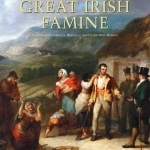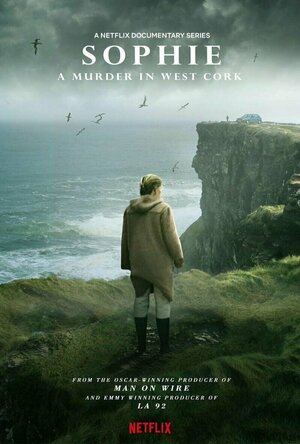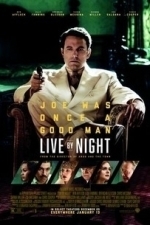
Atlas of the Great Irish Famine
John Crowley, William J. Smyth and Mike Murphy
Book
The Great Famine is possibly the most pivotal event/experience in modern Irish history. Its global...

Lonely Planet Ireland's Best Trips
Lonely Planet, Catherine Le Nevez, Fionn Davenport and Belinda Dixon
Book
Lonely Planet: The world's leading travel guide publisher Discover the freedom of open roads while...

Jobs.ie Job Search
Business and Lifestyle
App
Looking for a new job in Ireland? Download the Jobs.ie Job Search App and start your Irish job hunt...

IrishJobs.ie Job Search App
Business and Lifestyle
App
Find your new job in Ireland. The IrishJobs.ie job app will take your job search effortless. Take...
Erika (17789 KP) rated Sophie: A Murder In West Cork in TV
Jul 31, 2021
The documentary series had a wide variety of talking heads, from Du Planier’s family, friends, locals, various members of the Garda, and surprisingly, the main suspect. Du Planier’s private life seemed complicated, and it was definitely going to be utilized against her throughout the entire thing.
The case was interesting, Du Planier was found in a bramble bush a few days before Christmas. With seemingly no leads, and a haphazard investigation, I didn’t know how they would end up with a suspect. The first episode set everything up, establishing what the town was like by interviewing the locals. There was even a little spookiness brought in. A few days before her death, Du Planier had visited some ruins, and saw a white lady, which was an omen of death. Pretty interesting, and you wouldn’t think it was pertinent, however, Du Planier took it seriously.
If you watch enough true crime documentaries, you know normally what a killer would do, revisit the scene, be overly helpful, etc. It was clear as soon as they introduced the journalist that he was indeed the suspect. However, when the second episode started, the series was taken over by the main suspect, journalist and ‘poet’, Ian Bailey. As one of Du Planier’s family members quipped, he loves to be interviewed.
Somehow, Bailey had all of this insider knowledge, and wrote somewhat salacious articles about Du Planier, painting her as this woman that entertained all sorts of men. He was also very adamant that the murder was French, and probably her partner or another intimate partner. Bailey was somewhat charismatic, but a complete weirdo. It is common for law enforcement to go after the ‘others’ in society, so was he targeted because he was eccentric? Who knows?
It was clear that the Garda in this area had no idea as to what to do. They may have also had a little tunnel vision because the village creep was poking around the crime scene.
I’m all for presenting all sides to a case, but having the suspect take over in a very charismatic way is not the best approach. The Garda in the area, inexperienced in investigating murders, was obviously not equipped to deal with the investigation. It was clear from the beginning that it was the primary reason the case hasn’t been officially prosecuted in Ireland.
Whenever your documentary begins to get overtaken by the number one suspect, rather than the victim, I begin to have issues. It was also interesting that at the end of the series, there was actually a statement that Du Planier had been forgotten throughout the entire event, and while she was present, she wasn’t the center of the story.
Bailey seems to be the most likely culprit, though, the Garda couldn’t have convinced me beyond a reasonable doubt. It was interesting that somehow in France, the evidence was considered solid enough for a conviction.
I did generally enjoy the documentary series, but again, I have an issue with the main suspect overshadowing the victim. Also, I didn’t feel like enough evidence was presented, and the majority of it was slightly repetitive. I’m interested to see if the case is ever resolved. Based upon the series, probably not.
Bob Mann (459 KP) rated Live By Night (2017) in Movies
Sep 29, 2021
Morally bankrupted by his experiences in the trenches, Joe Coughlin (Affleck) returns to Boston to pick and choose which social rules he wants to follow. Not sociopathic per se, as he has a strong personal code of conduct, but Coughlin turns to robbery walking a delicate path between the warring mob factions of the Irish community, led by Albert White (the excellent Robert Glenister from TV’s “Hustle”), and the Italian community, led by Maso Pescatore (Remo Girone). Trying to keep him out of jail is his father (“Harry Potter”’s Brendan Gleeson) who – usefully – is the Deputy Police Chief. Life gets complicated when he falls in love with White’s moll, Emma Gould (Sienna Miller). The scene is set for a drama stretching from Boston to the hot and steamy Everglades over a period of the next twenty years.
Although a watchable popcorn film, the choppy episodic nature of the movie is hugely frustrating, with no compelling story arc to glue all of the disparate parts together. The (often very violent) action scenes are very well done and exciting but as a viewer you don’t feel invested in a ‘journey’ from the beginning of the film to the (unsatisfactory) ending. In my experience it’s never a good sign when the writer considers it necessary to add a voiceover to the soundtrack, and here Affleck mutters truisms about his thoughts and motives that irritate more than illuminate.
The sheer volume of players in the piece (there are about three film’s worth in here) and the resulting minimal screen time given to each allows no time for character development. Unfortunately the result is that you really care very little about whether people live or die and big plot developments land as rather an “oh” than an “OH!”.
Affleck puts in a great turn as the autistic central character whose condition results in a cold, calculating demeanor and a complete lack of emotion reflecting on his face. Oh, hang on… no, wait a minute… sorry… I’ve got the wrong film…. I’m thinking about “The Accountant”. I don’t know whether he filmed these films in parallel. I generally enjoy Ben Affleck’s work (he was excellent in “The Town”) but for 95% of this film his part could have been completed by a burly extra with an Affleck mask on. In terms of acting range, his facial muscles barely get to a “2” on the scale. Given the double problem that he is barely credible as the “young man” returning mentally wounded from the trenches, then in my opinion he would have been better to have focused on the writing and directing and found a lead of the likes of an Andrew Garfield to fill Coughlin’s shoes.
That’s not to say there is not some good acting present in the rest of the cast’s all too brief supporting roles. Elle Fanning (“Trumbo”, “Maleficent”) in particular shines as the Southern belle Loretta Figgis: a religious zealot driving her police chief father (Chris Cooper, “The Bourne Identity”) to distraction. Cooper also delivers a star turn as the moral but pragmatic law-man.
Sienna Miller (“Foxcatcher”) delivers a passable Cork accent and does her best to develop some believable chemistry with the rock-like Affleck. Zoe Saldana (“Star Trek”) is equally effective as a Cuban humanitarian.
In summary, it’s sprawlingly watchable… but overall a disappointment, with Affleck over-reaching. One day we surely will get a gangster film the likes of another “Godfather”, “Goodfellas” or “Untouchables”. Although this has its moments, unfortunately it’s more towards the “Public Enemies” end of the genre spectrum.

Reflection of Youth by Eera
Album Watch
Before she moved to the UK from Norway to pursue a career in music, Anna Lena Bruland's grandfather...
alternative rock


